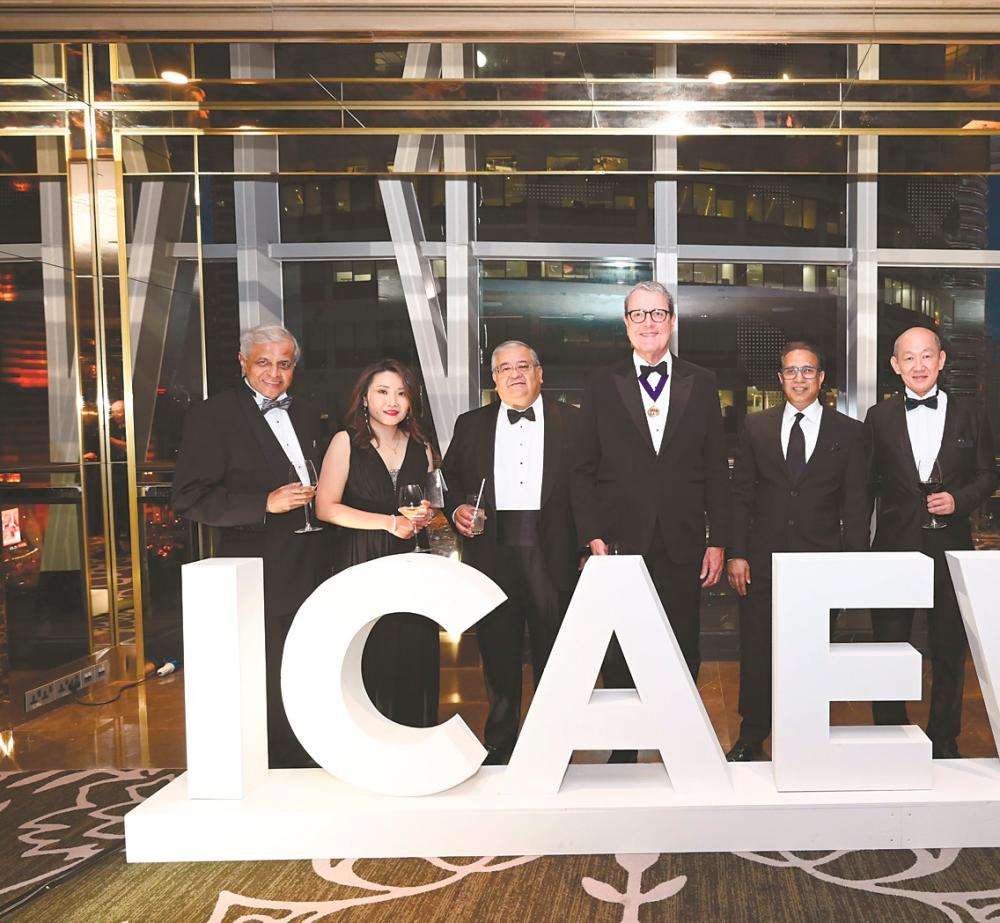KUALA LUMPUR: Sustainability reporting in Malaysia is expected to grow as the global demand for environmental, social, and governance (ESG) compliance becomes more relevant in the local market and gains greater significance for all stakeholders.
According to the Institute of Chartered Accountants in England and Wales (ICAEW) global president Mark Rhys (pix), sustainability reporting is experiencing significant growth in Europe, and he believes Malaysia will also witness a gradual increase due to regulators such as Bursa requiring public-listed companies (PLC) to disclose sustainability statements or reports, following their guidelines and listing requirements on the exchange.
In Malaysia, sustainability reporting became mandatory for all PLCs in 2016 to enhance accountability and transparency in business decisions, activities, and operations for investors.
According to the exchange’s framework, sustainability is defined as conducting business in a responsible manner while considering its impact on the economy, environment, and social context, as well as simultaneously ensuring business continuity and competitiveness over the long term.
Rhys foresees ESG or sustainability reporting providing significant opportunities for audit firms to capitalise on – as PLCs and small and medium enterprises become more aware of its significance to regulators, financial institutions, investors, and the public.
He added that audit firms should not be solely driven by profit but also by a collective responsibility to create awareness among corporations and the public, as it will inspire the market as a whole to make significant changes in addressing the issue of climate change.
“There is a move afoot very soon here to require disclosure of compliance with sustainability standards,” he told SunBiz.
Meanwhile, he noted that Europe has the advantage of developing its ESG or sustainability goals and strategies ahead of developing countries such as Malaysia, which “have more to do to catch up.”
Rather than focusing on the political facet of the ESG agenda, he pointed out that auditors, as neutral “preparers of accounts” are more focused on the informational aspect and relaying it to the companies as well as stakeholders.
Rhys said that if local regulators such as Bursa Malaysia have set and outlined reporting requirements, it is imperative for audit firms to create “meaningful reporting” that is clear and concise to assist stakeholders in making informed decisions.
“It’s quality information, trustworthy information, prepared by trusted individuals using a framework that we’ve globally agreed upon... then let’s make good business decisions about it. Without quality information, you cannot make good decisions. People want to make good decisions,” he added.
In terms of investment, Rhys said that investors or “providers of capital, whether it’s debt or equity,” want to be privy to companies’ decisions regarding the sustainability of business environments.
He added that investors need information from quality sustainability reporting contributing to the United Nations’ Sustainable Development Goals, particularly on a company’s carbon footprint and its impact on global warming.
According to Rhys, more stakeholders are concerned about the overall business aspect of the companies they invest in, as they recognise the global impact of investing in companies conscious of their contribution to the environment.
In addition, investors are more inclined to invest in businesses adhering to global ESG standards and emphasising the minimisation of their carbon footprint such as using renewable energy and sustainable materials in their buildings.
As sustainability becomes increasingly prevalent globally as well as the local market, many businesses have become more inclined to work with suppliers adhering to global ESG standards.
“It is so important because for companies that are part of a supply chain, and the people they supply to want them to know the answers. People want to know whether companies are taking their responsibilities seriously in terms of sustainability,” Rhys said, adding that it has become a collective responsibility for all parties to combat climate change and support the ESG agenda.
He observed a growing trend of people wanting to work for businesses that understand and deliver on their environmental responsibilities.
“It’s the pressure to do the right thing that is really going to change. People are going to find it less and less appealing to work for companies that do not care about their climate impact,” Rhys said.
On the other hand, he said that while one does not necessarily have to be a chartered accountant to set up a business, holding professional accounting and finance qualifications such as those offered by ICAEW can be useful for business owners, as they provide overall knowledge of how businesses operate including the legal framework of taxes, bookkeeping, and other important skills needed to run a successful company.
“It’s about thinking about business and your responsibilities as well as ethics. You need some basic knowledge about how to keep track of who you owe money to, who owes you money, the importance of cash, and paying taxes. There’s a legal framework you’ve got to apply as well as systems and processes you must learn,” said Rhys.
Touching on the ACA, which is the ICAEW’s chartered accountant qualification, he said that those with the qualifications are not only equipped with accounting skills but also trained in overall business skills, which include knowledge of tax rules, corporate law, and more.
“That’s what makes us more valuable, generally in the market for people with accounting skills because it’s more than accounting skills... it’s business skills.”
To date, there are approximately 2,000 ICAEW members in Malaysia. Established by royal charter in 1880, the ICAEW is a professional membership organisation that promotes, develops, and supports chartered accountants and students globally. As of July 2022, it has more than 198,000 members and students in over 140 countries.
Recently, the institute celebrated its Members’ Society Malaysian Chapter annual dinner, with 450 chartered accountants, authorised employers, government stakeholders and university partners in attendance.









